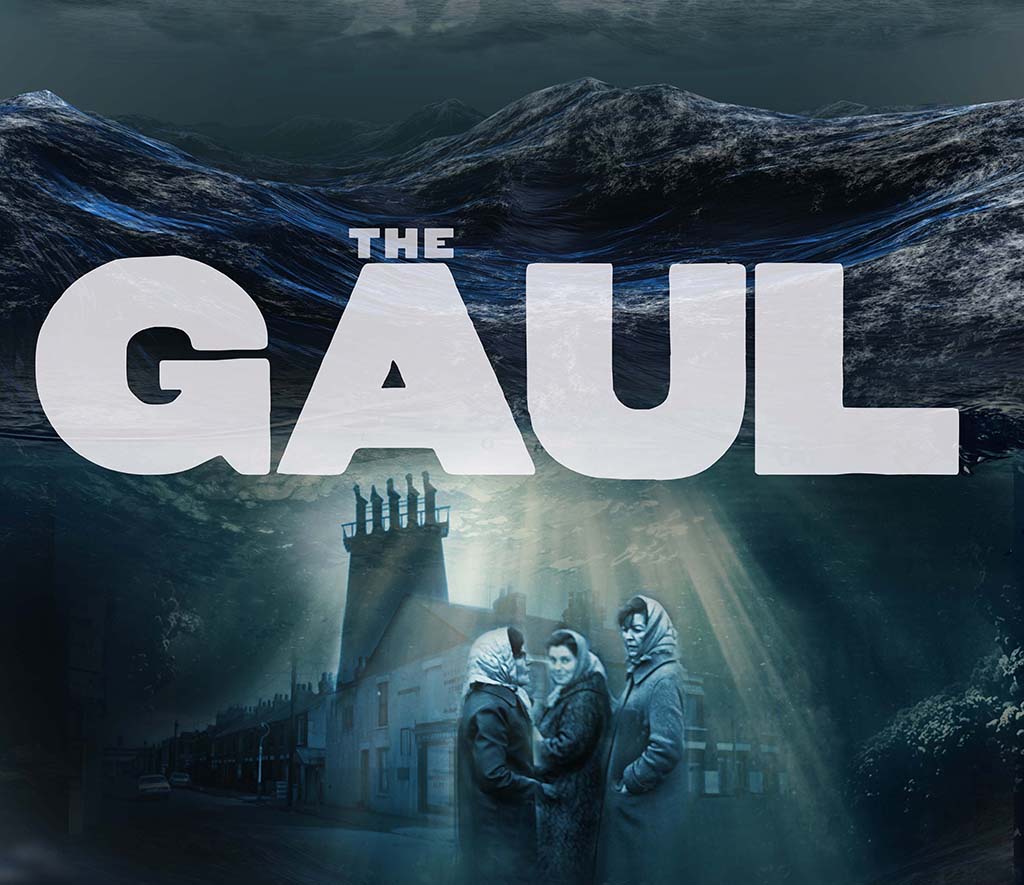This second work in a Hull Trilogy of plays produced by Hull Truck, examines the mystery of The Gaul, the trawler boat that didn’t call May Day, but disappeared in February 1974 leaving families wondering whether their menfolk were scuppered, or unlucky or somehow spirited to Russia by spies. The rumour mill of forty years has given plenty of material for Plater to pick over.
The striking set design (Patrick Connellan) is dominated by a giant curve that could be the hull of a ship, a cresting giant wave, or the heart of a kitchen. A rather poorly lit, power-cut kitchen, with a constantly boiling kettle to make the countless cups of consolatory tea that the tragedy requires.
It’s nearly Christmas 1973, and young teenage Kay (Arden) wants a tank top and platform shoes, the adults are dressing for a night out, and Slade wishes it could be Christmas every day. A poignant touch – as this will be the last Christmas trawler men Jack (Hornsby) and Davey (Graham) will be at home with their families. A fond farewell and they’re off, Jack leaving Kay his Hull City scarf – her little piece of dad.
Jump to February and the news is coming in that the Gaul is missing and the lives of Mam (Parks) and Linda (Dale) starts to unravel. They cling to hopes of miraculous survivals or conspiracy theories. As the effects of the three-day week unfold, the kitchen darkens, the much-vaunted looking out for each other begins to fray, and Kay’s brother Ian (Costigan) explodes in unhappiness and guilt: you’re all thinking, why wasn’t it me on the Gaul?
Direction is crisp, playing is precise and well timed. There’s some joking from Jack, mimicking his hero Eric Morecombe’s trick with the paper bag. There’s a lovely folk song written by Mike Waterson and performed by Eliza Carthy.
There’s a moment of hope in 1997 when the wreck is located, and Ian and Kay visit its site. Kay’s life has been on hold, but this seems to unlock some of her frustrated ambitions to make something of herself. She’s researching DNA (or HRT according to Linda). She begins to see her Dad with adult eyes, returning home a hero from every trip, with presents and treats, while the mams were always there, every day, the anchors of the family. Mam is quick to dispel this interpretation – ‘they were the best of men’.
And it is Mam’s stubborn determination to view the trawler men through rose tinted spectacles that is writ large across the piece and converts it from a drama into an homage. How could Hull critique a tragedy like this? It is a slice of life, a valediction, which means it works for Hull folk who lived it, and can recognise themselves on stage.
We know what happened to The Gaul. Just as the women wait for news, the audience anticipate the devastation and wait for sense to be made of this loss. Which misses the point. There can be no resolution. This isn’t a fictional plot with a big final reveal or showdown. All that can be achieved is what happens between cast and audience in sharing this reflection: an evocation of memory and community experience.
Judging by the standing ovation, for those who can share it, catharsis is achieved.

